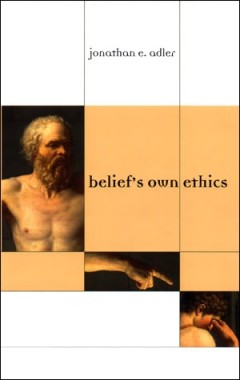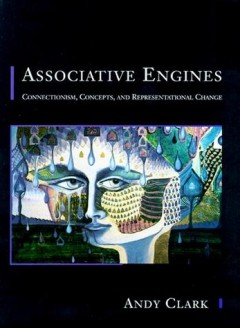Filter by

Belief's own ethics
"A Bradford book."The fundamental question of the ethics of belief is "What ought one to believe?" According to the traditional view of evidentialism, the strength of one's beliefs should be proportionate to the evidence. Conventional ways of defending and challenging evidentialism rely on the idea that what one ought to believe is a matter of what it is rational, prudent, ethical, or personall…
- Edition
- -
- ISBN/ISSN
- 9780262266826
- Collation
- 1 online resource (xv, 357 pages)
- Series Title
- -
- Call Number
- -

Associative engines :connectionism, concepts, and representational change
"A Bradford book."Connectionist approaches, Andy Clark argues, are driving cognitive science toward a radical reconception of its explanatory endeavor. At the heart of this reconception lies a shift toward a new and more deeply developmental vision of the mind - a vision that has important implications for the philosophical and psychological understanding of the nature of concepts, of mental ca…
- Edition
- -
- ISBN/ISSN
- 9780262270427
- Collation
- 1 online resource (xiii, 252 pages) :illustrations
- Series Title
- -
- Call Number
- -

Mind and morals :essays on cognitive science and ethics
"A Bradford book."The essays in this anthology deal with the growing interconnections between moral philosophy and research that draws upon neuroscience, developmental psychology, and evolutionary biology. This cross- disciplinary interchange coincides, not accidentally, with the renewed interest in ethical naturalism. In order to understand the nature and limits of moral reasoning, many new et…
- Edition
- -
- ISBN/ISSN
- 9780262279284
- Collation
- 1 online resource (x, 315 pages) :illustrations
- Series Title
- -
- Call Number
- -

Microcognition :philosophy, cognitive science, and parallel distributed proce…
"A Bradford book."Parallel distributed processing is transforming the field of cognitive science. Microcognition provides a clear, readable guide to this emerging paradigm from a cognitive philosopher's point of view. It explains and explores the biological basis of PDP, its psychological importance, and its philosophical relevance.OCLC-licensed vendor bibliographic record.
- Edition
- -
- ISBN/ISSN
- 0585002967
- Collation
- 1 online resource (xiv, 226 pages).
- Series Title
- -
- Call Number
- -
 Computer Science, Information & General Works
Computer Science, Information & General Works  Philosophy & Psychology
Philosophy & Psychology  Religion
Religion  Social Sciences
Social Sciences  Language
Language  Pure Science
Pure Science  Applied Sciences
Applied Sciences  Art & Recreation
Art & Recreation  Literature
Literature  History & Geography
History & Geography